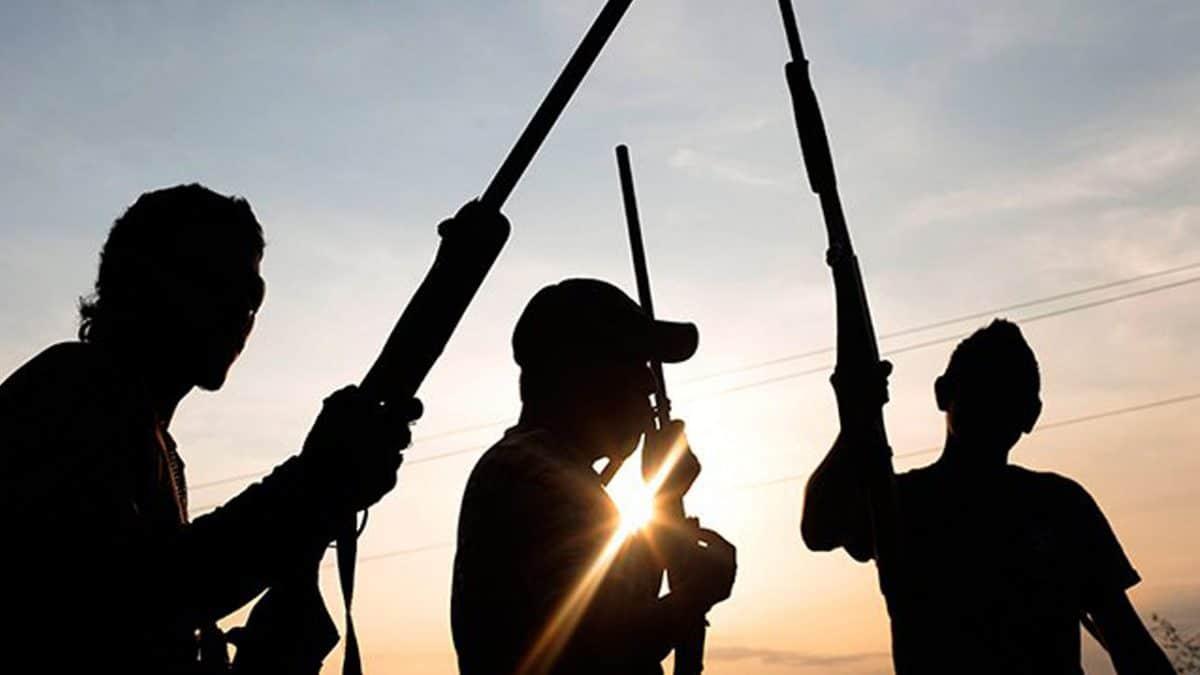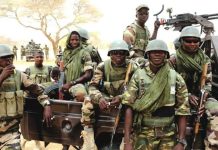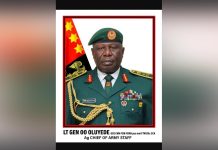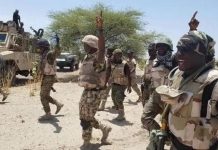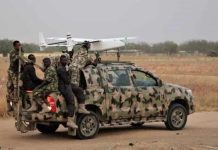By Abba Hamisu Sani
Africa-Press-Nigeria Transnational threats that do not arise have national rivalries or involve geopolitical competition, climate change, food insecurity, pandemic disease, terrorism, and cybercrime—can destabilize a country just as severely as an invading army.
Beyond warfare, the military may be employed in additional sanctioned and non-sanctioned functions within the state, including internal security threats, population control, the promotion of a political agenda, emergency services and reconstruction, protecting corporate economic interests, social ceremonies among others.
Challenges of Military Security
The Nigerian state over time have witnessed an increasing novel security issues that make the calls for military involvement on existing and emerging non-traditional security issues through Internal Security Operations inevitable as these issues continues to metamorphosed revealing their high level belligerencies continually.
In view of the aforementioned issues and many others, The empirical qualitative method to underscores Nigeria’s military security issues_
Col Dudu Rtd finds out that Nigeria’s peculiar historical experience and security reality is that which has compelled military involvement in Internal Security Operations
and these issues fall within the theoretic spectacle of non-traditional
security issues unlike the developed countries where their military security issues are still within the scope of traditional security issues.
Also, the increasing novel security issues are dis-enabling militarism in many third
world countries but the political, economic, socio-cultural, human and environmental cost of not involving the military into Internal Security Operations is disastrous to national security and proper functioning of such countries experiencing
He argued that the fluid and ever changing nature of contemporary security issues
especially with the increasing intra-state violence and the dwindling of inter-state violence, will be witnessing continued and increasing military involvement in Internal Security Operations inevitably in many countries and the need for professionalism in such military involvement cannot be overemphasized.
Keywords:
Background
The security experience and realities of many third world countries are often ignored or at most designate to the back burner in the discus of security studies in international relations, downplaying the role these security experiences and realities play on issues like global terrorism, migration crisis, human trafficking, child soldering ,money laundering, small arms and light weapon proliferations, violent crime, cyber-crime etc.
On the global outlook .Nigeria has been on the world stage since 1960, and holds a strategic and important place on the continent of Africa and the global community at large, a major diplomatic force and player in the world of politics
However, Nigeria’s security issues have taken several dimensions inimical to the security
and continued survival of the Nigerian state as a sovereign nation
Col Dudu is of the view that, the categorization of security issues in international politics places military security issues within the international security theory of traditional security issues.
The condition of military security climate in Nigeria thus far seems to be a departure from that matrix of military security categorisation in international politics.
This is because external threats from neighbouring countries are never a
source of concern to the Nigerian state; its major military threats are internal. Unlike the developed countries
where its military security issues are still within the scope of traditional security issues, it is a different casescenario in many third world countries and Nigeria in particular as bulk of its past, existing and emerging military security issues are internal and they fall within the theoretic spectacle of non-traditional security issues.
The security challenges witnessed in Nigeria so far have proven, from their magnitude, shown converselyt hat the Nigerian Police and other Para-military establishments cannot tackle them as it is evidential by the huge cost that the Nigerian state have incurred.
It is a fact that experiences from developing and under-developed countries shows that stiff competition over issues of power, legitimacy and resource control can threaten internal security and throw the entire nation into a chaotic state e.g. the case of Rwanda, Liberia, Sierra Leon, Afghanistan, Pakistan, Columbia, and many others. Therefore, the need for military participation in internal security operations leaves much to be desired.
This move of involving the military into ISOPs however is not without challenges of its own as the military are not known primarily and particularly trained for ISOPs unlike the Civil Security Authorities.
As a result, the military consistently engage in acts which are not considered civil in many fronts. Therefore, institutions (like the military) should inject people oriented programmes and policies in pursuing its goals amid objectives so as to optimize its image and enhance symmetrical understanding


